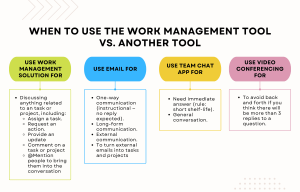Any entrepreneur knows that brilliance alone won’t take a good idea to market. To launch a new product or service, a business needs cash.
Some entrepreneurs are blessed with capital endowments from the offset, and others successfully market their ideas to investors or friends with money. But for everyone else, the options are unfortunately pretty limited.
Many business owners who find themselves in this unfortunate but all-too-common position believe that the best thing to do—the only thing they can do—is run to the nearest bank and take out a loan. It turns out that this may not be the best thing to do, and it’s certainly not the only option.
Struggling To Get A Loan? You’re Not Alone
Obtaining a bank loan can actually be quite challenging for entrepreneurs and small business owners. Let’s take a very simplified look at what banks ask for on a loan application, and then talk how meeting those requirements might pose some problems.
Banks usually require two things in order to qualify an individual for a loan:
- Pass a credit check with a high credit score
- Have non-liquid assets to use as collateral to secure a loan
While meeting these requirements may be a piece of cake for some applicants, some entrepreneurs might have trouble meeting one or both, which would disqualify them from receiving a loan.
Many small business owners use their own money to finance their businesses, which means that their credit scores will fluctuate as they make changes to their business. Business investments are costly and occur frequently, and especially for professionals like attorneys, real estate agents, and insurance agents, who often wait long periods for payments to arrive, personal finance and business finance tend to overlap quite a bit.
Professionals trying to scale their small businesses are also less likely to have the amount of non-liquid collateral (stocks, bonds, and real estate) that banks are interested in accepting as collateral. Many business owners rent spaces rather than own them, and prefer having liquid assets that can be used to directly invest in the business.
Factoring In The Alternative Solutions
For those entrepreneurs who don’t qualify for loans (or who don’t want to pay returns on a monthly rate), there’s an easier option: factoring.
Factoring is a different type of financial solution that can benefit any business that has future receivables. Rather than checking to see if a business has a specific credit score or specific amount of assets, factoring companies only look to see how large a class of future receivables a company has.
Future receivables, also known as future earnings or expected income, come in all different forms.
- For contingency fee attorneys, future receivables are their attorney fees. A factoring company will examine an attorney’s case inventory to determine the size of an attorney’s future cumulative fee.
- For sales agents who work on commission, future receivables are their commission payments. Factoring companies would look at ongoing transactions, expected sales values, and past commissions to gauge future receivables.
- For salaried employees, future receivables are stipulated in contracts. Athletes often seek factoring agreements because their contracts state that payments will occur only a few times a year.
Here’s how factoring works: a factoring company will purchase a portion of a business’s future receivables and then the business will receive a sum of money equal to the size of that purchase. After the business is awarded its future receivables from its obligor, the factoring company is repaid directly.
Factoring has a few other benefits. There are no monthly payments and no debts (all repayments come directly from your future receivables). Interest rates may be higher because of the higher risk involved, but you’ll be able to use more of your own money in the interim.
The next time your business is strapped for cash, consider working with a factoring company and saving yourself the trouble of struggling with a loan.
Business & Finance Articles on Business 2 Community(70)
Report Post






